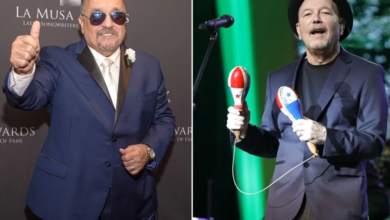Do you know which are the most and least relaxing musical genres?
Know the genres that, according to science, can cause you relaxation or anxiety.

Study tries to discover which is the musical style that is more and less relaxing. Photo: Pexels
LatinAmerican Post | Ariel Cipolla
Listen to this article
Leer en español: ¿Sabes cuáles son los géneros musicales más y menos relajantes?
To a greater or lesser extent, we all listen to music. It is an engaging sound experience that varies, of course, depending on the tastes of each person. Precisely, those tastes are what make us attract certain genres for their sensations since what a rock style implies is not the same as a jazz style, for example.
This is especially important in a pandemic context, where we saw our activities curtailed, but the music has always been there. It does not matter that we are at home, that we go for a walk or even that we are working: we will always want to have a moment of relaxation because there will be a song available on a platform that generates something special for us.
In this sense, over the years, several studies have investigated what is the connection we have with music, especially in cardiac terms with the intention of seeing how relaxing the different musical genres are, to discover what the musical style is which is more and less relaxing.
Relaxation and music
Before moving on to the specific results of each genre, we can highlight a study carried out by neuropsychiatrist David Lewis, who listened to songs to determine brain variations and find the most relaxing songs in the world. The winner, in this case, had been one: Weightless, by Marconi Union.
That is, we are talking about a topic that managed to reduce anxiety by approximately 65%. However, that doesn't necessarily tell us something about the musical genres themselves, but rather the study we talked about earlier could shed a lot more light to get a bigger picture.
Generally speaking, synthpop tracks are effective for relaxing, as they lower blood pressure. The same goes for music from the 2000s, like Rihanna or Shakira. Paradoxically, the heavy metal of Black Sabbath also achieved something similar, contrary to what happens with techno or dubstep, which increases anxiety.
For example, the Daily Mail tells that some of the most iconic artists of the 80s, such as David Bowie or Prince, managed to reduce blood pressure to 96% in its most experimental and absorbing facets. On the other hand, when we talk about the electronic genre (specifically, techno) the trend is completely opposite since 78% experienced an increase in blood pressure.
This experiment is interesting for several reasons. In the first place, whenever we talk about relaxation we tend to emphasize the rhythm of a genre, but we have seen that there is no relationship. For example, heavy metal reaches a tempo of about 150 beats per second, but, at the same time, it reduces blood pressure, as happened with Black Sabbath.
Also read: Bad Bunny and Rosalía: An analysis of their new musical proposal
Another curious aspect is that there is music that, a priori, seems to be the one we always use to relax. We are talking about jazz and blues that, in reality, fall within the 5 least relaxing genres. The answer would seem to be in the structure of the song, but not necessarily in its rhythm. That is, rock can have high beats per second, but maintain more or less fixed structures throughout the whole song.
On the other hand, in jazz and blues we observe several pattern changes that generate irregularities and startles in those who listen to it (hence, also, its charm). This can be seen, for example, in Sing, Sing Sing by Benny Goodman, who keeps changing rhythm and "speeding up" as that happens.
At the same time, the research determined another more surprising result: classical music, which is often seen as perfect for relaxing, failed to reduce anxiety as much. It only did so by 15%, something that would also be related to the complexity of the structure of each of the compositions.
However, a Science Direct study reveals that some classical artists, such as Chopin or Beethoven, can help students focus to pass exams, even if that is not synonymous with relaxation. Precisely, classical music seems to be perfect for remembering, as it activates a process known as "directed memory reactivation" (TMR), which helps the brain to consolidate memories.
The important thing about this study is that it helps to eliminate some prejudices that we have about various genres. However, it is important to note that the sensations will vary according to the personal characteristics of each one. Precisely, the most beautiful thing about music is the possibility of offering different sensations to each one, depending on the genre that is being listened to.




